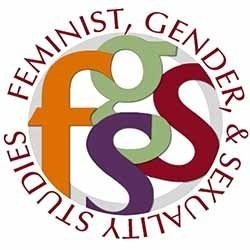
Feminist and anti-racist approaches to student evaluation, led by Tracy Carrick, Kate Navickas, and Derrick Spires
REGISTER IN ADVANCE TO ATTEND WORKSHOP HERE.
Tracy Hamler Carrick (Knight Institute Writing Workshop Director, Graduate Writing Service Director)
As director of the Writing Workshop and of the Graduate Writing Service, Dr. Carrick supports writers, teachers, and tutors in their efforts to compose and sponsor strong and meaningful prose, and to promote e/quality in attitudes towards diverse writing styles and language practices. Dr. Carrick teaches First-Year Writing Seminars and facilitates teacher- and tutor-training courses and workshops for the Knight Institute. In these courses and workshops -- which typically explore the diverse circumstances in which people read, research, and write -- she challenges students, tutors, and teachers to critically examine the functions and uses of text, and to produce writing and writing assignments that are rhetorically effective and engaging in myriad personal, professional, and civic contexts. Like activist and poet Adrienne Rich, she believes that “You must write, and read, as if your life depended on it.” Her work in the field of Rhetoric and Composition explores relationships between language and power; literacy and access to social and political institutions; and critical/popular education and activism. More specifically, she writes with and about writers to explore the dynamic ways that people work together to learn, to understand diverse language and discourse practices, and to co-write as they imagine and work toward personal, social, and institutional change. She is the co-editor of Authorship in Composition Studies (2006), and has published scholarly essays on critical pedagogy, community-based learning, writing center/program administration, and institutional activism.
Kate Navickas (Cornell Writing Centers Director)
Kate Navickas supports writing and writers in a variety of ways in her work at Cornell. As the Director of the Cornell Writing Centers, she hires, trains, and offers ongoing professional development for 40-50 undergraduate tutors. As a writing workshop teacher, she works one-on-one with diverse undergraduate writers in the First Year Writing Seminars. And, in the summer, she teaches new graduate instructors how to teach writing and fosters deeper engagement with teaching writing for TAs through a summer Writing Center Internship program. In her First Year Writing Seminars (WRIT 1380 & WRIT 1420), Kate encourages students to explore issues of language, identities, discrimination, and larger social divisions through their readings, research and writing. She asks writers to slow down, to dwell with different texts and perspectives, to put texts in conversation around their own questions and interests, and to interrogate their own ideas and writing. She loves experimenting with multimodal and creative assignments, and has been recently teaching a research-centered FWS in which students spend 8-week conducting research and composing journalistic podcasts. Kate’s research comes from a tradition of teacher/practitioner-motivated action research. That is, she asks questions that emerge from her work in the classroom, her experiences becoming an administrator, and her work with specific groups of writers. Whether she’s analyzing a national set of feminist-oriented writing assignments, reflecting on her efforts to support multilingual writers in the writing center, or studying the affective dimensions of administrative work, her research is motivated by feminist commitments and a desire to create more just classrooms, approaches to teaching, and writing centers.
Derrick Spires (Associate Professor, Literatures in English)
Derrick R. Spires is Associate Professor of Literatures in English and affiliate faculty in American Studies, Visual Studies, and Media Studies. He specializes in early African American and American print culture, citizenship studies, and African American intellectual history. His first book, The Practice of Citizenship: Black Politics and Print Culture in the Early United States (University of Pennsylvania Press, 2019), traces the parallel development of early black print culture and legal and cultural understandings of U.S. citizenship. Considering a variety of texts by both canonical and lesser-known authors, Practice demonstrates how black writers articulated an expansive, practice-based theory of citizenship. Practice won the Modern Language Association Prize for First Book, the Bibliographical Society/St. Louis Mercantile Library Prize and the M/MLA Book Prize and was a finalist for the Library Company of Philadelphia’s First Book Prize. He has also edited a special issue of American Literary History dedicated to “Genealogies of Black Modernity” (Winter 2020). His work on early African American politics and print culture appears or is forthcoming in African American Review, American Literary History, and edited collections on early African American print culture, time and American literature, and the Colored Conventions movement. He is working on a second book, Serial Blackness: Periodical Literature and Early African American Literary Histories in the Long Nineteenth Century, that takes up seriality as both the core of early African American literary history and a heuristic for understanding blackness in the long nineteenth century. His research has been supported by fellowships from the National Endowment for the Humanities, the American Antiquarian Society, the Library Company of Philadelphia, Oberlin Archives, the Social Science Research Council, and the UNCF/Mellon-Mays and Ford Foundations.
Sponsored by Feminist, Gender, & Sexuality Studies
Disrupting White Supremacy: A Series in Feminist Pedagogy on Cornell Events
